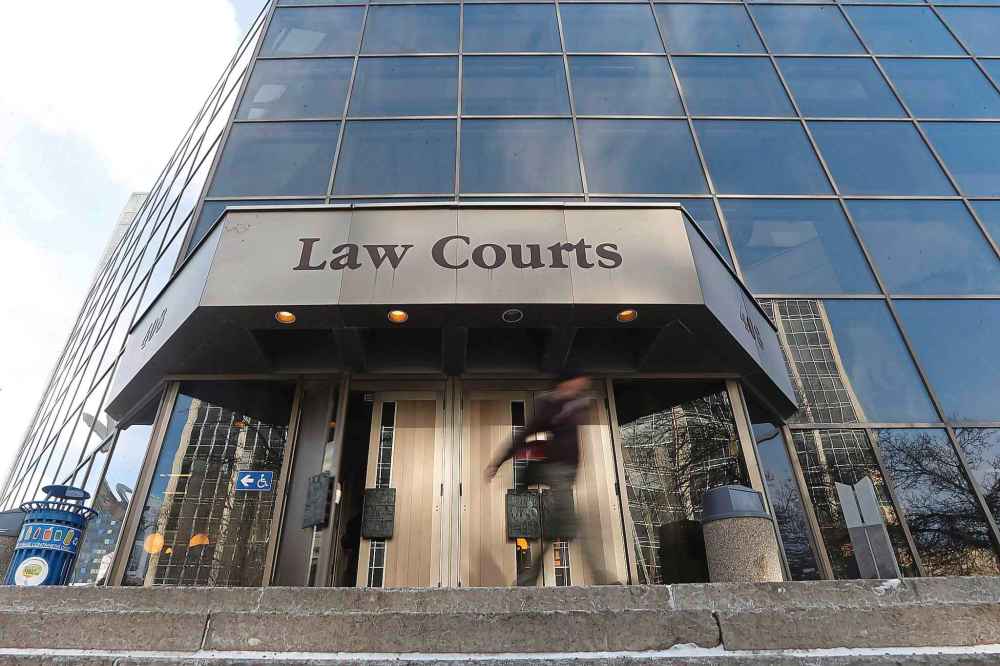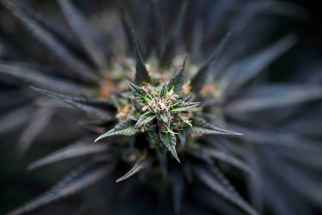Pot possession prosecutions will continue ahead of legalization
Read this article for free:
or
Already have an account? Log in here »
To continue reading, please subscribe:
Monthly Digital Subscription
$0 for the first 4 weeks*
- Enjoy unlimited reading on winnipegfreepress.com
- Read the E-Edition, our digital replica newspaper
- Access News Break, our award-winning app
- Play interactive puzzles
*No charge for 4 weeks then price increases to the regular rate of $19.00 plus GST every four weeks. Offer available to new and qualified returning subscribers only. Cancel any time.
Monthly Digital Subscription
$4.75/week*
- Enjoy unlimited reading on winnipegfreepress.com
- Read the E-Edition, our digital replica newspaper
- Access News Break, our award-winning app
- Play interactive puzzles
*Billed as $19 plus GST every four weeks. Cancel any time.
To continue reading, please subscribe:
Add Free Press access to your Brandon Sun subscription for only an additional
$1 for the first 4 weeks*
*Your next subscription payment will increase by $1.00 and you will be charged $16.99 plus GST for four weeks. After four weeks, your payment will increase to $23.99 plus GST every four weeks.
Read unlimited articles for free today:
or
Already have an account? Log in here »
Hey there, time traveller!
This article was published 20/06/2018 (2734 days ago), so information in it may no longer be current.
Cannabis possession will be legal in Canada in less than four months, but federal prosecutors will keep prosecuting the crime in the interim.
“The prohibition on cannabis contained in the (Controlled Drugs and Substances Act) continues to be valid law and, until such time as the Cannabis Act comes into force,” says a directive issued Wednesday to federal prosecutors by Public Prosecution Service of Canada, one day after the government’s marijuana legalization bill was passed by Parliament.
“PPSC will continue to prosecute offences contained within the (act).”

The new law won’t take effect until Oct. 17. Under the new legal regime, adults will be allowed to possess as much as 30 grams of dried cannabis in public. There will be no federal limit on the amount of marijuana stored in a private home, although Quebec is instituting its own 150-g limit.
Cannabis possession charges are “still and the system and we will be proceeding,” said Ian Mahon, the chief federal prosecutor in Manitoba.
Mahon pointed out cannabis possession could still be a crime under the new legal regime.
“Non-legitimate sources of marijuana or non-legitimate possession of marijuana is still an offence under the Cannabis Act,” he said. “So if you buy it from, you know, whoever on the street, as opposed to the government-approved distributor, that’s still going to be an offence under the Cannabis Act of simple possession.”
Charge rates for simple cannabis possession “have been decreasing from very recent, but historic highs,” said Ottawa-based criminal defence attorney Michael Spratt. He warned cannabis possession charges laid in the coming months would likely drag on until after legalization.
“So if prosecutions are not suspended now, we’re going to be left with the abhorrent situation of individuals being sanctioned and punished for an activity that may have been legal for months or years since their charge.”
In his experience, said Spratt, crown attorneys have become “more liberal” with their approach to cannabis possession, seeking to divert charges or impose non-criminal sanctions.
“But the mere fact that someone is charged and has multiple court dates, and has to complete diversion programs, community service or other requirements while on conditions of release prior to the Crown doing the right thing and withdrawing charges, is enough of an affront that it should be concerning in and of itself, even short of convictions being imposed,” he said.
Pursuing the prosecution of simple cannabis possession charges ahead of legalization is “a waste of resources,” said Annamaria Enenajor, a Toronto criminal defence lawyer.
“We know that our justice system is underfunded and bloated, and overworked, and needs serious reform, and it just doesn’t make sense to continue to prosecute offences that the government has recognized through its legislative process no longer pose any public safety concerns, and for which there no longer exist any public safety or public good reason to pursue,” she said.
Enenajor is also the director of the Campaign for Cannabis Amnesty, which is petitioning on the government to issue blanket pardons for past cannabis possession convictions.
Prime Minister Justin Trudeau said Wednesday his government wasn’t ready to grant that wish.
“Until the actual coming-into-force date happens and the law is changed, there’s no point looking at pardons while the old law is on the books,” Trudeau said during a news conference in Ottawa.
“We’ve said we will look at next steps once the new (law comes into force). But between now and then, the current regime stays.”
The directive sent to federal prosecutors Wednesday was prepared by the Public Prosecution Service’s director and deputy director. It advises any potential prosecutions for cannabis-related crimes have to take into account whether there’s a “reasonable prospect of conviction.”
“The imminent change in the law relating to cannabis is not a basis for judge or a prosecutor to choose not to apply the existing law,” says the directive, which was provided to the Free Press.
Crown attorneys must also consider whether pursuing a cannabis prosecution is in the public interest, the document says.
That could include weighing the safety of youth, the health and safety of the public more generally, conduct suggesting “organized systemic illicit cultivation” of cannabis, whether the offence “was blatantly defiant of the existing prohibition,” whether there was a “significant quantity or concentrated form of cannabis,” and whether the offence took place in a penitentiary.
Cannabis prosecutions “will generally not be in the public interest” if the offender is young and possessed five grams of cannabis or less, says the document, or if the sentence “would be disproportionate to the circumstances of the offence and offender.”
— with files from Katie May
solomon.israel@theleafnews.com
Twitter: @sol_israel








